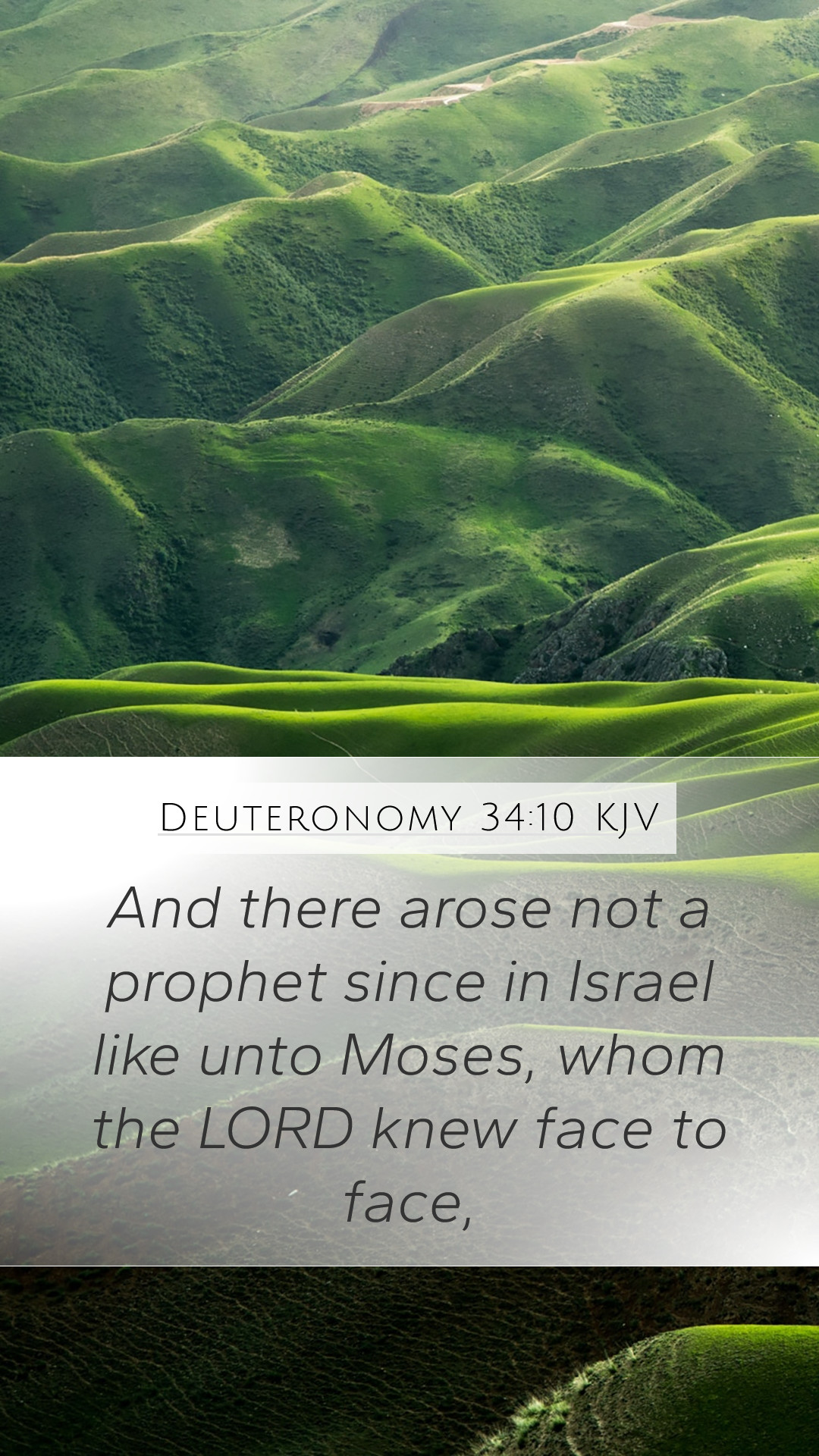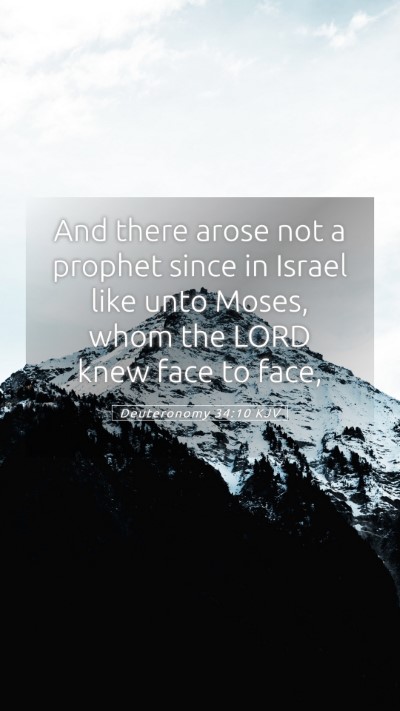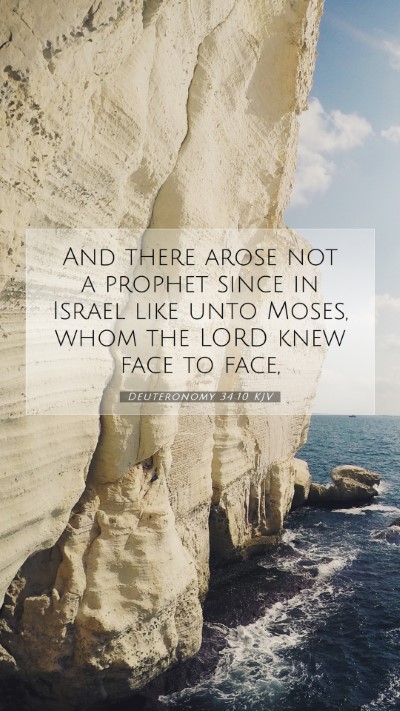Understanding Deuteronomy 34:10
Bible Verse: Deuteronomy 34:10 - "And there arose not a prophet since in Israel like unto Moses, whom the Lord knew face to face."
Bible Verse Meanings
Deuteronomy 34:10 stands as a significant declaration about the uniqueness of Moses as a prophet. This verse encapsulates God's extraordinary relationship with Moses, highlighting his unparalleled position among the prophets of Israel.
Insights from Public Domain Commentaries
Matthew Henry's Commentary
Henry emphasizes the intimate communion that Moses experienced with God, stating that no other prophet enjoyed such a direct and personal relationship with the Lord. He notes how this relationship was not only about receiving messages but about being in the presence of God, which was a unique privilege.
Albert Barnes' Notes
Barnes discusses the significance of Moses as a mediator. He points out that Moses represented God to the people and the people to God. This role, combined with the knowledge he had of God, made him an unparalleled figure in Biblical history. Barnes mentions that the prophetic office was continued after Moses, yet none equaled his direct communication with God.
Adam Clarke's Commentary
Clarke elaborates on the absence of a prophet like Moses by underlining his role as a leader and lawgiver. He illustrates how Moses not only delivered the Law but also performed miraculous works, which set him apart from subsequent prophets. Clarke notes that Moses’ unique experiences laid the foundation for the covenant community of Israel.
Significance and Application
The verse serves to remind readers of the critical role of prophetic leadership in guiding Israel, while simultaneously encouraging reflection on one's own relationship with God. Moses' example leads to various applications in personal faith journeys and communal worship.
Bible Verse Interpretations
- Uniqueness of Prophetic Experience: Deuteronomy 34:10 illustrates that Moses’ encounter with God was one of a kind, encouraging believers to seek deep communion with God in their own lives.
- Call to Leadership: The verse challenges leaders today to strive for a relationship with God marked by closeness and obedience, as exemplified by Moses.
- Foreshadowing of Christ: Some interpretations see Moses as a precursor to Christ, who fulfills the role of the ultimate prophet through His direct revelation from God (Hebrews 3:2).
Cross-References
- Exodus 33:11 - God's speaking to Moses face to face.
- Numbers 12:6-8 - God distinguishing between His communication with Moses and other prophets.
- Hebrews 3:5-6 - A comparison of Moses and Christ, highlighting their roles in God's plan.
In-Depth Bible Verse Analysis
This verse serves as a critical reference point for understanding the role of prophets in Israel's history. The profound relationship between God and Moses illustrates the concept of prophetic authority and intimacy, offering valuable lessons for contemporary believers.
Conclusion
Through Deuteronomy 34:10, we gain significant Bible study insights into the characteristics of divine communication and leadership. As we reflect on this verse's meaning, we are encouraged to deepen our understanding of Scripture and its applications in our lives.
Further Study Resources
If you are looking for more structured Bible study guides or online Bible study tools, consider joining a Bible study group or utilizing various Bible study materials available for deeper exploration of the Scriptures.
In summary, Deuteronomy 34:10 is not merely a historical statement about Moses; it invites all believers to seek a personal encounter with God and to understand the profound implications of prophetic leadership in their spiritual lives.


